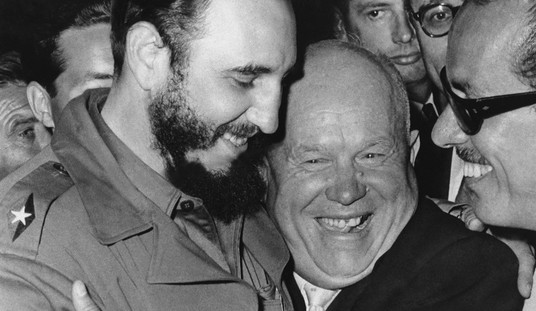It’s not just that voters disapprove of President Obama; it’s also that they think he’s able to offer far less in the way of leadership than they originally hoped. In fact, by an almost two to one margin (60 to 32 percent), voters believe President Obama has turned out to be a weaker leader than expected. Among critical swing voters, the outcome is bleaker (65 to 24 percent, with 36 percent saying much weaker compared to 7 percent much stronger). A majority of women also share this view, 56 to 35 percent.
That’s all according to a study to be released tomorrow by Resurgent Republic, an independent non-profit dedicated to shaping the debate on the proper role of government.
Not surprisingly, Democrats still say they find The One’s leadership to their liking. Fifty-nine percent said the president has been a stronger leader than expected, while 34 percent said he’s been weaker. But interestingly, union voters said the inverse: 58 percent characterized the president as weaker, while 33 percent characterized him as stronger.
“To me, this just speaks to the waning enthusiasm among groups that you would typically think of as part of the Democratic base,” explains Luke Frans, executive director of Resurgent Republic.
Non-urban voters also believe President Obama is a weaker leader than they expected, 65 percent to 27 percent. That’s significant when you consider that the president just devoted his entire jobs tour to non-urban areas (much to the chagrin of urbanites, who by a plurality — 48 to 44 percent — agree that the president has been a weaker leader).
So, what’s the difference between disapproval and characterizing the president’s leadership as weaker than expected? Disapproval connotes disappointment with decisions, policies and, perhaps, leadership (among other things) — but for voters to say outright that the president has displayed weaker leadership than they expected is to suggest they doubt his presidential capacity — his ability to ever be a president of widespread acclaim and approval. As Frans put it, the question becomes, “To what extent have these voters come to the conclusion that the president is in over his head?”
Voters who have reached that conclusion just might be right. Obama appears to fundamentally lack the brilliance required to be an effective president. In their book “Executive Thinking: From Brightness to Brilliance,” executive development consultants Morris A. Graham and Kevin Baize posit that the best executives possess strong visual-spatial thinking capacity, along with the ability to be decisive, directional and speedy — third and fourth dimensions of thinking that transcend verbal and mathematical ability.
This president, however bright, seems to lack the ability to effectively process conflicting information to arrive at innovative solutions. Just recollect his performance during the debt ceiling debate to see that. Not only could he not decide whether his end goal was a clean increase or a grand bargain, he also failed to ever present a vision that drew from the strengths of every competing party’s proposals — what a truly brilliant leader might have been able to do. The president can offer all the excuses he wants — but, in the end, take away excuses and all that’s left are results.
It also surely doesn’t help that Obama came of age in the 60s, the anti-authority age if ever there was one. Who knows if some subconscious part of Obama finds truly strong leadership — whether that’s the leadership of the president in our country or the leadership of our country in the world — to be a vice of sorts?
No matter the reasons for now. It’s all bad news for the president as he stages a speech as much for the benefit of raising reelection funds as for the sake of substantively addressing the jobs crisis.
Plus, past research from Resurgent Republic suggests Obama’s Thursday speech will do little to raise Obama’s leadership profile. On July 8, RR conducted four focus groups in the critical states of Pennsylvania, Virginia, Florida and Colorado — and found at least one of Obama’s noted strengths was actually contributing to independents’ growing disappointment with him. From the results memo:
“He’s voiced leadership, he just hasn’t shown it,” said one senior Independent female in Florida. The theme that President Obama needs to “follow through” on his rhetoric was common in both Independent groups. President Obama’s strength of being an effective communicator has the potential of reinforcing voters’ appetite for more than rhetoric. Participants could not name an economic accomplishment and did not believe President Obama has a plan to create jobs or to solve the financial problems of Medicare. Voters give President Obama credit for killing Osama bin Laden, but that event did not bolster his leadership standing on domestic issues.
In other words, Obama — still as sound an orator as the teleprompter president has ever been — will probably sound appealing to listeners Thursday — but that doesn’t mean they’ll be snowed by the speech. Independents recognize that words are no substitute for a substantive policy shift. (Nor, again, should verbal ability ever be conflated with executive intelligence.)
“Independents like what they’ve heard, but there’s a level of skepticism in the follow-through and would things really end up the way they had been framed by the president?” Frans said. “They weren’t quite sure or as willing to answer that question in the affirmative. … There is that dichotomy in what they hear and what they see.”
That cognitive dissonance will likely only grow after Thursday.









Join the conversation as a VIP Member